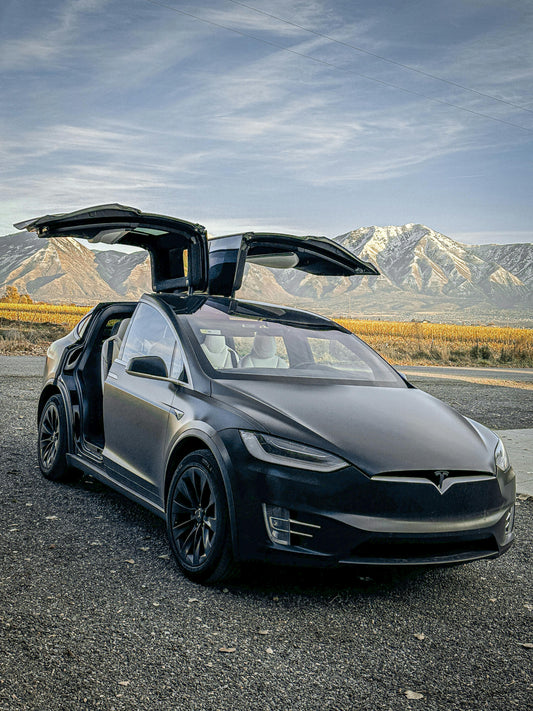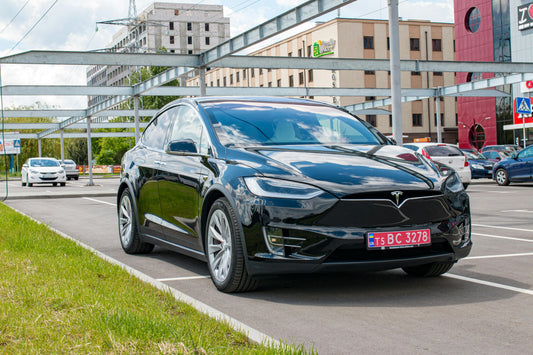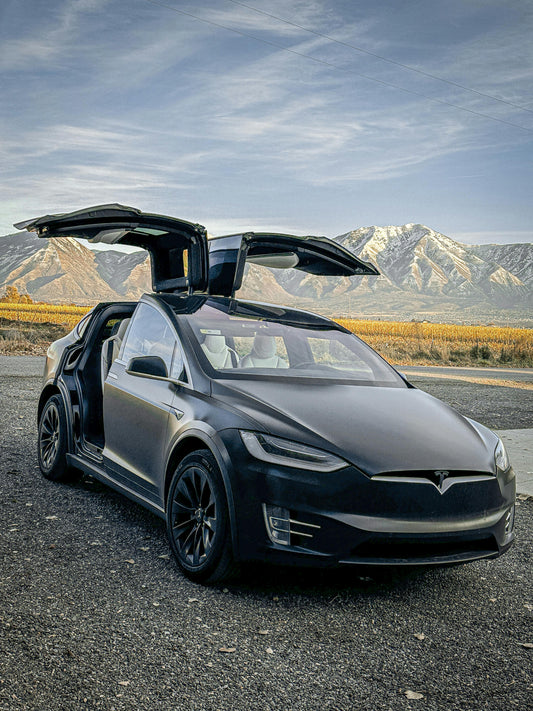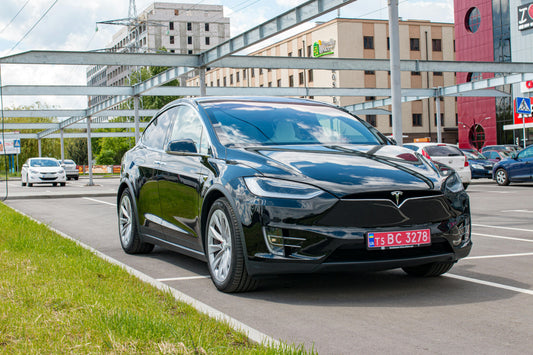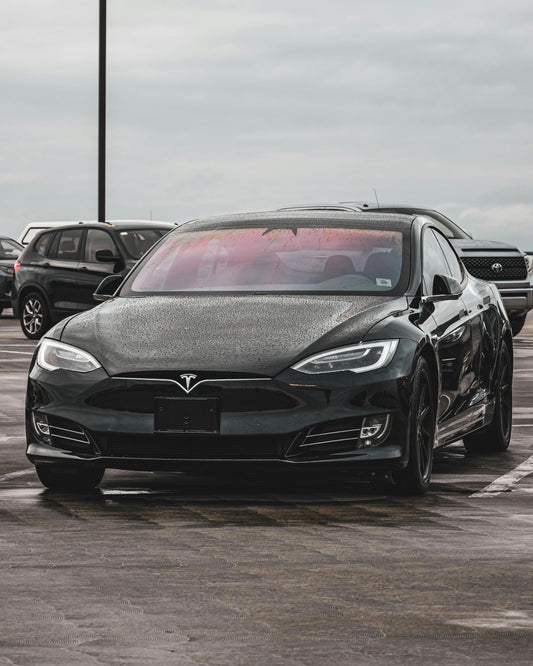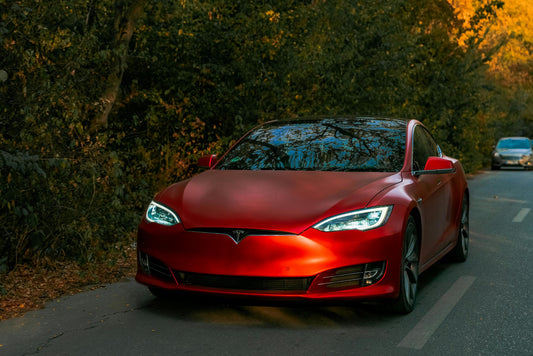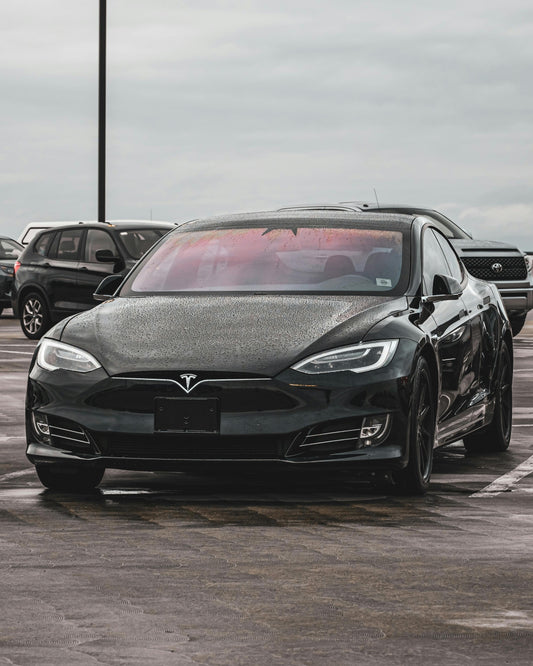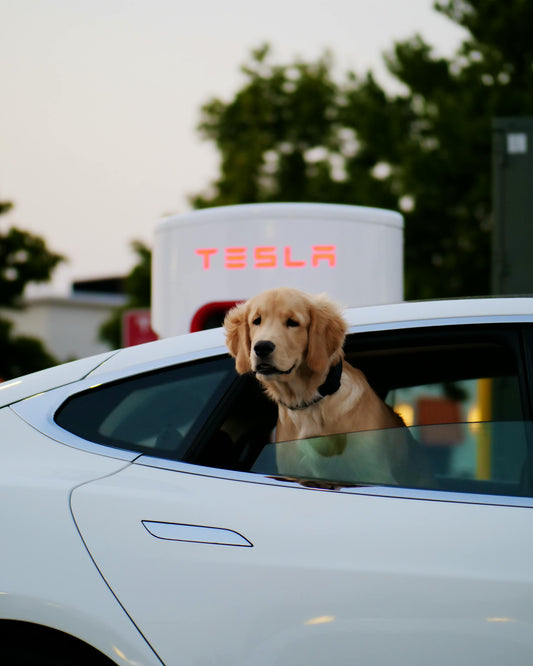
FAQs
Transition to an electric vehicle with confidence
Our FAQs provide you with clear, concise answers to your most pressing questions about electric vehicles, our offerings, and how we can support your journey towards a sustainable future.
What is an Electric Vehicle (EV)?
An electric vehicle (EV) is a car that is powered entirely or partially by electricity. Unlike traditional vehicles that rely on gasoline or diesel, EVs use electric motors and batteries to provide a cleaner, more efficient driving experience. This transition not only reduces your carbon footprint but also offers long-term savings on fuel and maintenance.
What Types of Electric Vehicles Do You Offer?
At Evolution, we offer a diverse range of electric vehicles, including both in-stock models for immediate purchase and pre-order options for the latest releases. Our selection caters to various preferences and budgets, ensuring that you find the perfect EV that aligns with your lifestyle and values.
Do You Sell Electric Vehicle Accessories?
Absolutely! Evolution provides a curated selection of EV accessories designed to enhance your driving experience. From home charging stations to eco-friendly cleaning products and DIY tools, our accessories ensure that you get the most out of your electric vehicle while supporting your sustainable lifestyle.
How Can I Learn More About Electric Vehicles?
Evolution is committed to educating our customers about electric vehicles. We offer workshops, informational sessions, and online resources to help you understand everything from EV technology to the benefits of going electric. Our knowledgeable staff is always available to answer your questions and guide you on your EV journey.
EV Maintenance & Practical Use
Do EVs require a lot of maintenance?
No. EVs have fewer moving parts and don't need oil changes or exhaust system repairs. Brake wear is also reduced thanks to regenerative braking.
Can EVs drive in the rain or through puddles?
Yes. EVs are designed to be safe in all weather conditions. The battery and electrical components are sealed and waterproof, however EVs should not be submerged in water.
Can I use an EV for long trips?
Absolutely. With careful route planning and access to fast chargers, EVs are well-suited for road trips. Newer models support ultra-fast charging and longer range. For the best results and efficiency user built in navigation system if supported or similar apps for this purpose.
Evolution EV Concept Store Algarve Services
Do you offer leasing or financing for EVs?
Yes! We strive to provide flexible leasing and financing options for individuals and businesses. Contact us to explore our tailored plans.
Can I test drive an EV before buying?
Of course. Book a test drive at our showroom to experience different EV models first-hand.
Do you sell used EVs?
Yes. We only offer a curated selection of quality pre-owned EVs, inspected, quality assured and guaranteed for performance.
Do you help install home chargers?
We work with trusted local partners to install and maintain home charging solutions for our customers and will help you choosing the best product to your needs.
Can I get EV insurance through you?
We collaborate with local insurers to offer competitive insurance packages tailored to EVs and your usage needs.
Costs & Ownership
Are EVs more expensive to buy?
Upfront prices are often higher than petrol cars, but the total cost of ownership is usually lower thanks to reduced fuel, tax, and maintenance costs.
Are there incentives for buying EVs in Portugal?
Yes. Benefits may include:
IVA (VAT) deduction for companies
No ISV (Vehicle Tax) or IUC (Annual Road Tax) for EVs
Subsidies for private or business buyers (check Fundo Ambiental)
How much does it cost to charge an EV?
Depending on provider, costs usually vary as follow:
Home charging: Around €0.15–€0.25 per kWh
Public charging: Varies by provider, from €0.25–€0.60 per kWh (faster chargers cost more)
Charging & Infrastructure
Are there enough charging stations in Portugal?
Yes. Portugal has an expanding national charging network, with hundreds of public charging points, especially in urban areas and along motorways.
How do I find public charging stations?
Apps like Mobi.E, PlugShare, Chargemap, or Google Maps help you locate and filter charging stations by speed, connector type, and availability. Many vehicles navigation system also provide good planning along routes and may have their own charging stations.
Do I need special apps or cards to charge publicly?
Many public chargers in Portugal require an RFID card or mobile app from a CEME (Mobility Energy Commercial Entity) like Galp, EDP, or others, however the network and standards are evolving every day and in some cases you can pay with credit / debit card at the charging station without additional fees.
What are the benefits of driving an EV
Electric cars offer numerous benefits, including reduced operating costs, environmental advantages, and improved driving experience. They are cheaper to run than gasoline-powered vehicles due to lower electricity costs compared to fuel, and they don't produce tailpipe emissions, contributing to cleaner air. Additionally, EVs offer a smoother, quieter, and more enjoyable driving experience. EVs deliver instant torque, resulting in quicker acceleration than gasoline-powered vehicles. The absence of a noisy engine and vibrations provides a smoother and more relaxing driving experience. Many EVs have batteries positioned underneath the vehicle, lowering the center of gravity and enhancing handling. You can pre-condition your vehicle before you leave, ensuring a comfortable temperature. Many EVs have regenerative braking systems that help slow the car down and can extend battery range.
How long does it take to charge an EV?
Home charging (AC): 6–12 hours Public fast charging (DC): 20–60 minutes to 80%
Charging time depends on battery size and charger speed.
How far can an electric vehicle drive on a full charge?
Range varies by model. Most new EVs offer between 250–500 km per charge, with high-end models exceeding 600 km.
What Support Do You Offer After Purchase?
At Evolution, our relationship with you doesn’t end with your purchase. We provide ongoing support, including maintenance tips, troubleshooting assistance, and access to our customer service team. Our goal is to ensure that your transition to an electric vehicle is seamless and enjoyable.
What is EPA, WLTP and NEDC range standards?
EPA, WLTP, and NEDC are standardized methods for measuring the range of electric vehicles (EVs), but they differ in their approach and accuracy. EPA (Environmental Protection Agency) tests are US-based and known for producing realistic range estimates, while WLTP (Worldwide Harmonised Light Vehicle Test Procedure) is a global standard widely used, especially in Europe, and offers a more comprehensive range estimate than NEDC, which was previously used in Europe.
Key Differences:
— EPA: The EPA testing protocol in the US focuses on various driving conditions, including city driving, high-speed, and even in-car electronics usage, making the resulting range figures quite reflective of real-world driving experiences.
— WLTP: WLTP includes both city and highway driving scenarios, resulting in a range estimate that reflects real-world usability.
— NEDC: NEDC, the predecessor to WLTP, used simulated environments and is often considered less accurate than WLTP or EPA, with potentially overestimated range figures.
Why are these standards important?
Standardization: These methods provide a standard way to compare the performance of different EV models.
Transparency: Consumers can get a clearer picture of a vehicle's real-world range before making a purchase, helping them make informed decisions.
Real-world accuracy: While WLTP offers a more comprehensive estimate, EPA is known for producing the most realistic range figures.

